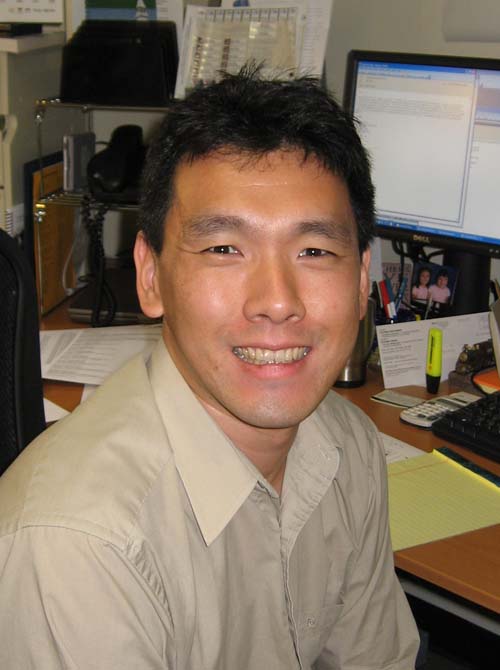Young White Students at Elite Colleges View Asian-Americans as More Competent than Blacks and Hispanics, Baylor Study Finds
Follow us on Twitter:@BaylorUMedia
Contact: Terry Goodrich,(254) 710-3321
WACO, Texas (Jan. 19, 2016) — Asian-Americans are stereotyped as "cold but competent" — and more competent than blacks and Latinos — by young white students at elite colleges, according to a Baylor University study.
For decades, media have put forth Asian-Americans as a prime example of non-white people who are upwardly mobile because of characteristics that supposedly are less evident in other racial minorities, researchers say. They wanted to determine whether people commonly believe that.
"Now we have some concrete evidence that some white people tend to think that," said Jerry Park, Ph.D., an associate professor of sociology in Baylor's College of Arts & Sciences. "We were able to show that a stereotype has some impact."
Those perceptions are important because they may affect voting behavior or how people behave in their jobs, he said.
The study, published in Social Psychology Quarterly, was limited to white students because "many of these respondents come largely from environments of privilege and likely will have significant influence in many quarters of American society," researchers wrote. "Knowing their attitudes about race will illuminate our understanding of the attitudes of the future 'ruling class.'"
Data for the study came from the National Longitudinal Survey of Freshmen, a large panel survey of 898 participants from 27 prestigious universities across the country.
Respondents were asked to rate their opinions of Asian-Americans, African-Americans and Latino Americans separately on a scale of 1 to 10, with 10 being "strongly agree." The perceptions were based on competence, intelligence and perseverance.
Participants who rated Asian-Americans as more intelligent, hard-working and perseverant than blacks and Latinos were more likely to agree with such statements as "Blacks need to work harder to move up" and similar statements about Latinos.
"That kind of statement is about whether responsibility for racial differences in upward mobility is a result of natural tendencies — as opposed to structural inequities in educational opportunity, access to good health care, jobs and other areas," Park said.
An unexpected finding was that students in elite colleges — presumably from families that are well to do and relatively educated — might be expected to think more critically about society, including considering such factors as education and socioeconomics rather than solely individual tendencies, Park said.
Co-researchers were Brandon C. Martinez, an assistant professor of sociology at Providence College; Ryon J. Cobb, a National Institutes on Aging postdoctoral scholar at the University of Southern California's Multidisciplinary Research Training in Gerontology Program and the Davis School of Gerontology; Julie J. Park, an assistant professor of education at the University of Maryland; and Erica Ryu Wong, an independent scholar in the Washington, D.C., area.
ABOUT BAYLOR UNIVERSITY
Baylor University is a private Christian University and a nationally ranked research institution, characterized as having "high research activity" by the Carnegie Foundation for the Advancement of Teaching. The University provides a vibrant campus community for approximately 16,000 students by blending interdisciplinary research with an international reputation for educational excellence and a faculty commitment to teaching and scholarship. Chartered in 1845 by the Republic of Texas through the efforts of Baptist pioneers, Baylor is the oldest continually operating University in Texas. Located in Waco, Baylor welcomes students from all 50 states and more than 80 countries to study a broad range of degrees among its 12 nationally recognized academic divisions. Baylor sponsors 19 varsity athletic teams and is a founding member of the Big 12 Conference.
ABOUT BAYLOR COLLEGE OF ARTS & SCIENCES
The College of Arts & Sciences is Baylor University's oldest and largest academic division, consisting of 25 academic departments and 13 academic centers and institutes. The more than 5,000 courses taught in the College span topics from art and theatre to religion, philosophy, sociology and the natural sciences. Faculty conduct research around the world, and research on the undergraduate and graduate level is prevalent throughout all disciplines.

